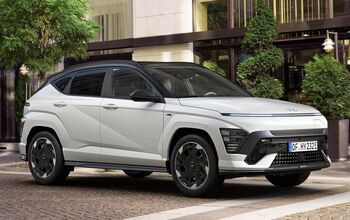Piston Slap: Keeping Cool, Saving Fuel

TTAC’s David Holzman writes:
One of my good friends asked me a question that I thought you and TTAC’s B&B could answer better than I could. “Hey David, We just returned from the beach yesterday. I tried an experiment with the air conditioner in the car on this trip. If we set the A/C at the coldest setting the car usually gets too cold, we usually adjust the temperature higher to keep us comfortable. However, I think the way the A/C works is that turning the temperature up simply allows some hot water from the radiator to heat up the air conditioned air. So we simply turned the A/C on and off as needed. Admittedly it was not quite as comfy since it would get a bit cold and a bit warm. I have two questions. First: does turning the A/C on and off at ten or fifteen minute intervals damage the A/C (such as putting greater wear on the electric clutch)? Second: does manually cycling the A/C save gas? We measured gas mileage after such a trip and got 30mpg, which was the best mileage we’ve ever gotten on the Camry. But we just had the oil changed and the air filter, which was pretty clogged, changed too. So I don’t know if it was the ac cycling that caused the improvement in mileage or the change of the air filter.”
I’ll answer these questions with my personal experiences: living in Houston and driving older cars with dying A/C compressors lends itself to hearing (old compressors are noisy) and seeing (Mom’s turkey thermometer shoved in the vent registers) your way to the answer.
I seriously doubt the radiator is involved in cold air dilution. From what (little) I know about HVAC, the compressor cycles less frequently when you turn the hot/cold knob on the dashboard closer to the center. With less cycling, there is less compressed refrigerant thrown into the system. Best and Brightest: is that fair?
To answer your first question, turning the A/C on and off at ten or fifteen minute intervals will not damage the A/C, but there’s a good chance the A/C works more efficiently when you tweak the blend knob instead. This is especially true in convertibles or any car with less then Lexus-like door sealing.
To your second question, manually cycling the A/C does save gas. Relative to leaving the A/C at full power, that is. I think there’s more benefit to leaving the A/C on MAX (a.k.a. Recirculation mode) and lowering the compressor’s cycle frequency via the hot/cold blend knob.
Bonus! A Piston Slap Nugget of Wisdom:
Send your queries to mehta@ttac.com

More by Sajeev Mehta
Latest Car Reviews
Read moreLatest Product Reviews
Read moreRecent Comments
- Brian Uchida Laguna Seca, corkscrew, (drying track off in rental car prior to Superbike test session), at speed - turn 9 big Willow Springs racing a motorcycle,- at greater speed (but riding shotgun) - The Carrousel at Sears Point in a 1981 PA9 Osella 2 litre FIA racer with Eddie Lawson at the wheel! (apologies for not being brief!)
- Mister It wasn't helped any by the horrible fuel economy for what it was... something like 22mpg city, iirc.
- Lorenzo I shop for all-season tires that have good wet and dry pavement grip and use them year-round. Nothing works on black ice, and I stopped driving in snow long ago - I'll wait until the streets and highways are plowed, when all-seasons are good enough. After all, I don't live in Canada or deep in the snow zone.
- FormerFF I’m in Atlanta. The summers go on in April and come off in October. I have a Cayman that stays on summer tires year round and gets driven on winter days when the temperature gets above 45 F and it’s dry, which is usually at least once a week.
- Kwik_Shift_Pro4X I've never driven anything that would justify having summer tires.


































Comments
Join the conversation
I've got a scangauge in my wrx, and at a stop with no a/c the engine uses 0.3 gallons of fuel per hour, but with the a/c on it reports 0.45 gph. Now driving down the freeway at a constant speed, a/c on does use more fuel than a/c off, but the amount is very small. At 55mph I'll go from something like 33mpg with it off to 32mpg with it on. My advice, turn it on after you get up to 30mph, or after you get done accelerating and are up to speed, and always turn it off at any stops.
Martin Albright You should have used approved Texas procedures. To wit, stick a cold one in your crotch to achieve localized core cooling. Bonus - just take a swig when you're feeling dehydrated. least ways, that's how it was told to me....